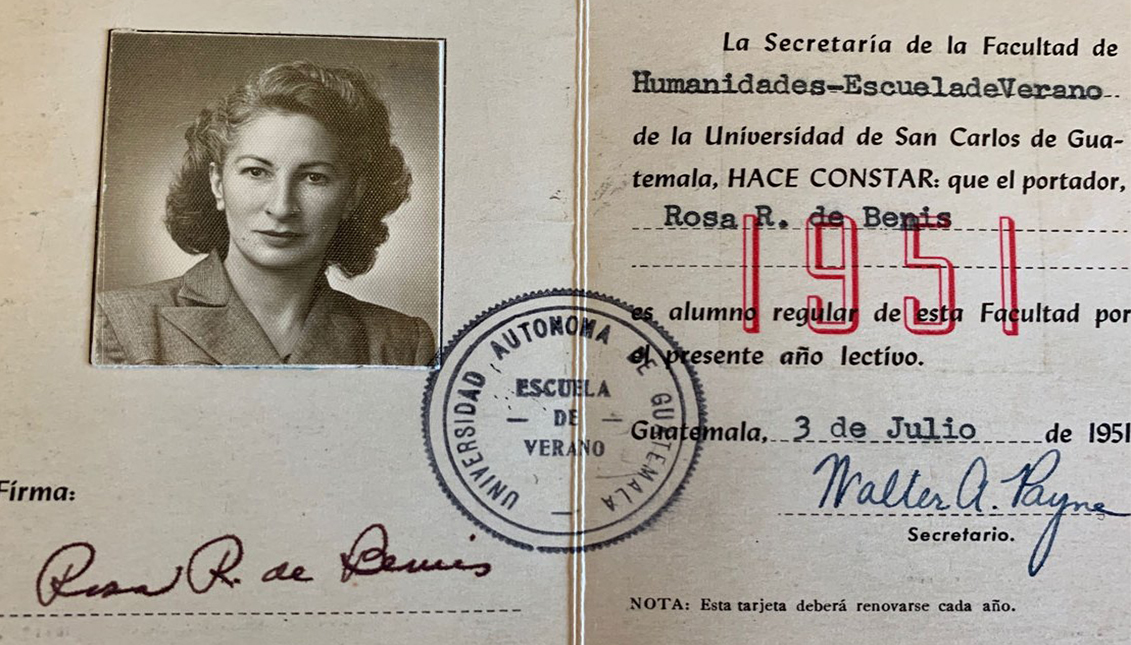
Luisa Moreno, a pioneer of labor rights in the United States
The Guatemalan journalist and activist was deported because of her communist affiliation. Before that, she led the struggle of all Latinx people throughout the…
The outcome of the presidential election has highlighted the tremendous role of women of color in the struggle to help households register voters and organize communities behind a cause. Leaders like Alejandra Gomez and labor leader Neidi Dominguez are proof
Although rarely remembered in history, Latina organizers have long been at the forefront of the fight for better wages and a more dignified life for their community in the U.S. They are conspicuous by their absence from school textbooks and brave women that played a major role in the development of the civil rights movement.
Around the time San Antonio activist Emma Tenayuca was organizing the legendary protest of the nut shellers in January 1938, another woman, Luisa Moreno, was waging a similar struggle.
For starters, Moreno helped found the National Congress of Spanish-Speaking Peoples, dedicated to fighting for fair treatment of Latino workers and the desegregation of schools, public places, and neighborhoods.
Moreno, who was born in Guatemala to a fairly wealthy family, moved to Mexico City at a young age to work as a writer and journalist, meeting icons of the day like painter Diego Rivera along the way.
Later, she arrived in the United States with her first husband, a Mexican cartoonist, and began working as a seamstress and soon became a community leader.
Moreno, who was never well known outside of academic circles despite her work as a street activist, not only advocated for the admission of women to universities, but toured the United States organizing workers from those in the garment industry in New York to the sugar cane laborers of New Orleans, the cigar rollers of Florida, and the tuna packers of San Diego.
Her work organizing multiracial coalitions within the labor movement was also tireless.
Moreno became an international representative of the United Farmworkers Packers and Allies of America, the first local CIO where Mexican women made up the majority of the membership, and was one of the first organizers for the Latin American Federation of Labor.
RELATED CONTENT
Her 1940 speech, known as the "Caravan of Pain" speech, is still powerful and current.
"These people are not aliens," Moreno said. "They have contributed their resistance, sacrifices, youth and work to the Southwest. Indirectly, they have paid more taxes than all the shareholders in California's industrialized agriculture, the sugar beet companies and the big cotton interests that operate or have operated with the labor of Mexican workers."
The life and struggle of Luisa Moreno not only highlights the enormous role of Latina organizers in improving the lives of workers and citizens around the country, but how they were catalysts for change 20 years before the United Farmworkers.
However, Moreno had a relatively brief history in the country before she was deported to Guatemala in the late 1940s for her membership in the Communist Party.
Her story does not end in her home country, and she still faced the threat of persecution when she had to escape from Guatemala in 1954, after the CIA-sponsored coup d'etat of Jacobo Arbenz's government. She and her second husband lived in Mexico for a few years, and after his death, Moreno made a pilgrimage from revolutionary Cuba to Tijuana, where she got a job at an art gallery.
On the border, Luisa died in 1992, at the age of 85.











LEAVE A COMMENT: